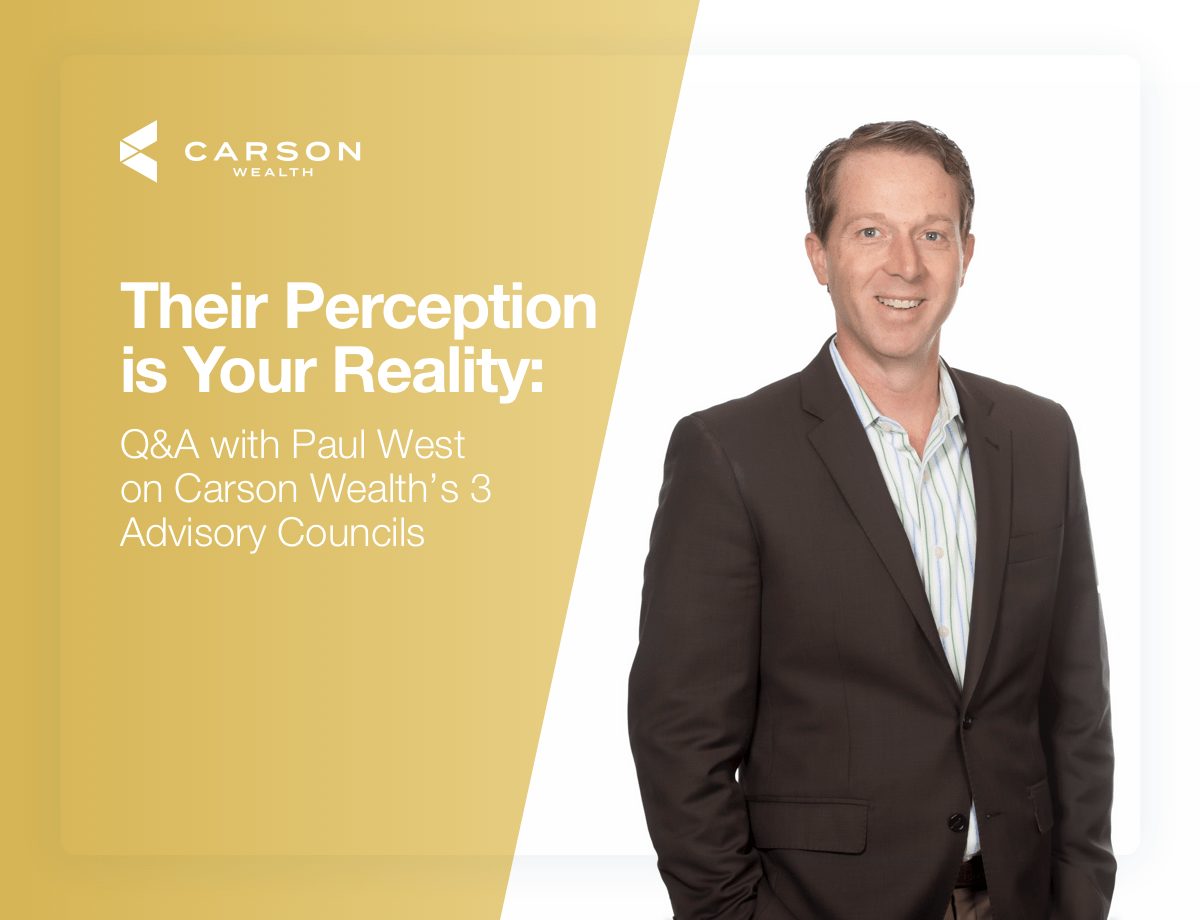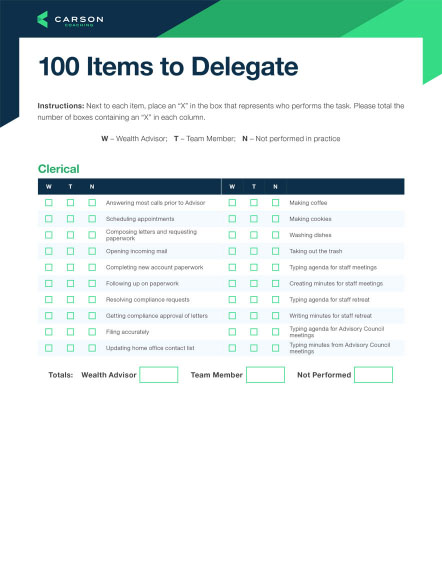If you happened to catch our November webinar, you heard Ron Carson and Paul West discuss the insights they gained from their most recent advisory council. During the presentation, the two also touched briefly on Carson Wealth’s decision to establish three separate advisory councils with specific audiences. We sat down with Paul West to dive deeper into the inspiration behind this move from one to three and learn how each council has shaped the firm’s offerings.
Traditional Council
Demographics:
- 8-10 individuals
- A+ HNW/UHNW clients
- Mix of men and women
- Client tenure from 3 months to 22 years
- Mix of planning & non-planning clients
Why is an advisory council a priority for firms today?
When I think about some of the best customer service I’ve received, the key is follow-up. For example, after I check out of a hotel, I immediately receive an email asking about my stay. Sometimes, in our profession, we forget that piece of the client experience.
We all think we know what our clients want, but the only way you truly know is if you ASK them. Advisory councils provide the ideal atmosphere for you to collect feedback that leads to those “ah-ha” moments for your business.
What is your advice to those who are just starting advisory councils of their own?
First, make it a priority to schedule an advisory council in the first six months of 2018. As we say at Carson Group, GSD (Get Stuff Done).
Then, once you’ve assembled the right mix of clients and your council meeting begins, shut up and listen. Our immediate tendency is to overcome objections, but time has shown us clients will stop giving you their ideas if you consistently defeat them.
Having done advisory councils for nearly two decades, what would you do differently?
At this point, we’ve fine-tuned our advisory councils to a level of detail that far surpasses our initial meetings some 20 years ago. But, improvement is always possible. One change I plan to make going forward is to ask members for a list of topics they’d like to discuss prior to the meeting. In the past, we’ve sent an agenda with the topics we plan to discuss, but we haven’t solicited the matters that are on the top of their minds until they were sitting in the room.
Women’s Council
Demographics:
- 8-10 women
- Established households, generally 50+
- Also includes COIs who have a niche in supporting female clients
What was the motivation behind a separate Women’s Council?
Through greater life expectancy, females end up controlling the majority of wealth. As a company, we recognize and embrace this reality. It seemed like a natural progression to form a council made up of those who represent our largest constituency.
What concerns do women have that may differ from male clients?
Our female clients tend to be highly focused on legacy planning. They want to know their money will allow them to take care of their loved ones while they are alive and after they are gone. Although this is also of importance for male clients, the women we meet with often emphasize this portion of the planning process to a greater degree.
What has been one benefit of forming a Women’s Council?
Based on what we were hearing from these women, our advisors have taken steps to put peace of mind and legacy goals more at the forefront of our planning process. There is a direct correlation from what went on in our conference room to what now goes on in our review meetings.
Millennial Council
Demographics:
- 8-10 induviduals
- Mix of children of clients, Millennial business owners, Millennial CPAs/attorneys and HENRYs (High Earners but Not Rich Yet)
Why is it important to get Millennials involved with an advisory council early in their careers?
Ultimately, Millennials are our next generation of clients. We want to start a relationship of trust now and continue to build that relationship as their careers and families grow. It’s vital to get their input on why they want to work with a firm like ours today and what they hope to accomplish with us tomorrow. The truth of the matter is they are smart enough to do it themselves through tech, but they come to us for the advice that robos can’t provide.
What has surprised you in working with a Millennial Council?
They move so much faster than traditional clients! I say this in the nicest way possible: They don’t want to beat around the bush. They appreciate transparency, could do without small talk, and are a lot more investment-oriented than advisors think.
How does your council shape the way you serve Millennial clients?
Most Millennials are planning for their next major life event – a first home, a wedding, children, etc. What they all have in common is this theme of controlling their expenses. Having a collection of voices saying the same thing has made us rethink the ways we can assist with budgeting and help fight the desire to keep up with the Joneses.


